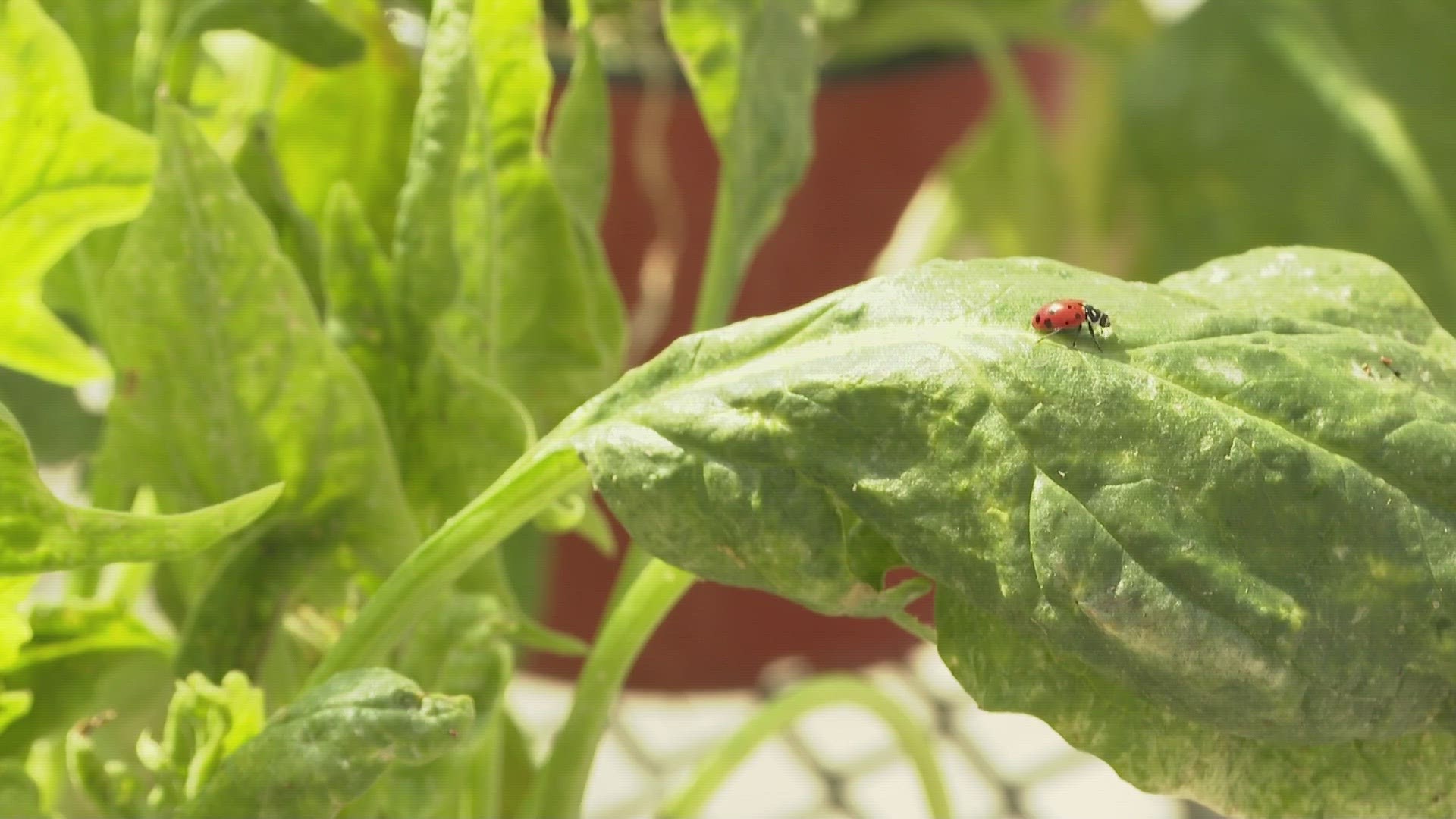DURHAM, N.H. — Sometimes, it's better to be lucky than good. Alina Harris Cypher is both.
While working on her master's in agricultural sciences at the University of New Hampshire, Cypher was trying to grow vegetables.
But she had an insect problem.
"We were growing artichokes, and the artichokes were covered in aphids," Cypher said during an April interview at the school's farm. "And we even purchased the insecticide."
Broad-spectrum insecticide, Cypher recalled, meaning it had a higher chance of killing unintended insects along with the aphids. Pesticides can also contaminate soil and water and even contribute to greenhouse gases. Cypher's team was on the fence about using it. And then, something happened.
"Then we saw the ladybugs come in," Cypher smiled. "And these are a form of biological control. We didn't release these ladybugs. They were already in the environment. And they started cleaning up those aphids."
Ladybugs are a common backyard insect in Maine and a natural predator to aphids, which are tiny insects that love to munch on crops. They can be the bane of a farm's existence.
Cypher and her colleagues continued to study these relationships and published their findings on how certain insects, including so-called hoverflies, interact with the crop-killing bugs and how they find them.
Dr. Becky Sideman supported Cypher, who dove into determining who was coming to lunch and what was on the menu.
"We — Alina — spent all this time, really, characterizing and counting and looking and seeing who was there, who's coming to these flowering plants, in a way that we didn't know before," Sideman, who is also credited in the published work, said.
The team found that when they planted flowering plants near crops, pollinating insects like ladybugs and hoverflies went to the flowers, and then laid their eggs on the crops where the aphids were.
Then the larva hatch and eat the aphids — all accomplished without using pesticides. This can be good for the planet and the food's appeal to buyers.
"You want to grow a marketable crop, you want to grow a clean crop, and the market is demanding for something that's more on the end of organic, or low-spray or no-spray," Cypher said.
But, she continued, it's not always that easy. And that's what universities like hers are there for: to put in the research for farmers across New England.
"One of the reasons this extension exists is doing this research and then disseminating this information to these growers and saying, 'Hey, look, we tried it. We saw some [benefits]. You might, too,'" she explained.
The moral of this research? It won't work for every crop and every insect. But when it does work, if we let nature in and let things be a little more wild, everyone can benefit.
"To really bring more nature into our farming systems provides habitat for all kinds of organisms that do good service work for us," Sideman said.
How much control, how much pesticide can be cut out, Sideman said, are still questions to be asked on each farm. But their researchers are here to help find answers.

